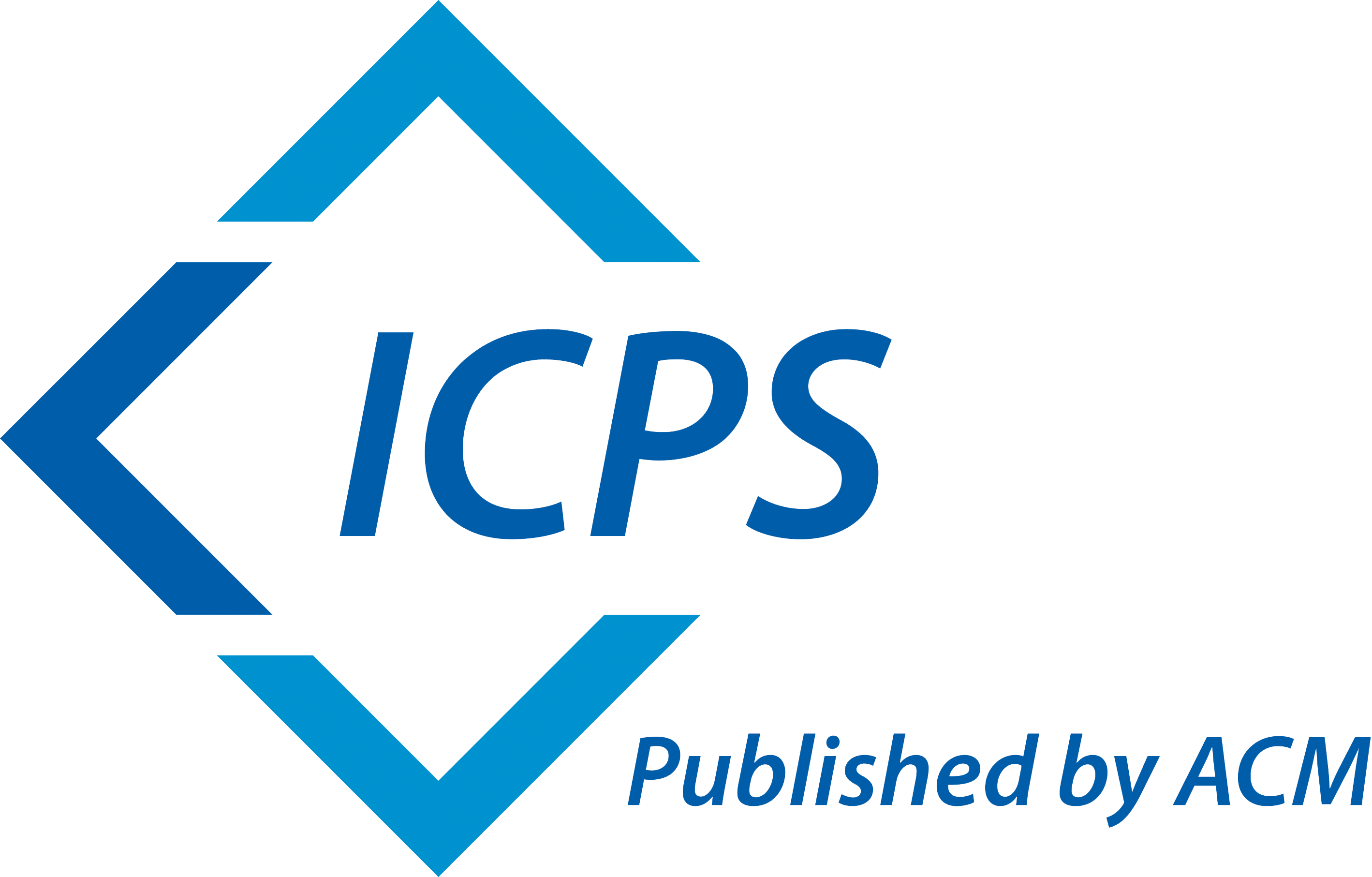The IAIT conference series is a premier annual international conference being organized by the School of Information Technology (SIT), King Mongkut’s University of Technology Thonburi (KMUTT) focusing on the recent advancements in Information Technology and its use towards creating a sustainable society. In the 11th edition the conference will be held from 1st to 3rd July 2020 in Bangkok, Thailand. This conference aims to bring together leading researchers, scholars, scientists, and students across the globe under one roof to exchange and share new developments and research ideas about all aspects of Information and Communication Technologies. The theme of the conference is “Digital Transformation and Innovation for Smart Business and Society”, with the main focus being on the recent advancements and breakthroughs in some of the most emerging technologies of the recent times like computational intelligence and machine learning, natural language processing, cyber security, human-centric computing, and smart systems. By incorporating a wide spectrum of topics, the conference tries promoting more inter-departmental and inter-disciplinary research towards creating a sustainable digital society benefiting mankind.ABOUT
we are soliciting original, innovative and unpublished research work including, but not limited to the following topics:
-
Date of conference: 1 – 3 July 2020
-
Full manuscript submission deadline (FINAL CALL) :
20 April 2020 12 May 2020 -
Notification of acceptance (FINAL ROUND) :
2 June 2020 -
Camera ready manuscripts:
12 June 2020 -
Registration and payment:
12 June 2020
PAPER SUBMISSION
Prospective authors are invited to submit original, high quality manuscripts of minimum 5 pages in length (upto a maximum of 10 pages) formatted as per the ACM Proceedings Template (downloadable from http://www.acm.org/publications/article-templates/proceedings-template.html). Paper submissions can be made via EasyChair at the following link: https://easychair.org/conferences/?conf=iait2020. All the submissions must be done both in the PDF format along with the Word (.doc) or LaTeX files.
All the accepted and presented papers will be published by the reputed ACM ICPS Series having ISBN number 978-1-4503-7759-1 and indexed by all major databases like Scopus, ISI Web of Science (Thompson Reuters), Ei Compendex, etc.
Review Process
IAIT follows a strict and rigorous double-blind peer review process where each submitted manuscript will be reviewed by at least 3 reviewers who are experts in their respective fields. The authors are expected to receive the full review within 30 days of their initial submission. The accepted manuscript must be revised, taking into consideration the referees’ comments and suggestions. All the revised manuscripts will undergo a second round of peer review process (if possible by the same reviewers) before inclusion in the conference proceedings. The authors will be given 15 days to revise their manuscript for resubmission.
The submission of a paper implies that the paper is original and has not been submitted and published elsewhere.
In addition, at least one full registration is required per accepted paper, and the paper must be presented by an author if accepted.
Update : 1/07/2020
|
|
|
| 9.00 – 9.15 | Opening Ceremony |
| 9.20 – 10.20 | Keynote Speech: Prof. Dr. Chidchanok Lursinsap
Title: Fast and Accurate Neural Learning with Limited Memory Size, Limited Energy Supply, and Class Drift Constraints in Streaming Data Environment |
| 11:00 – 11:45 | Invited Talk: Mr. Jirayut Srupsrisopa
Title: Digital Disruption: A viewpoint of startup founder |
| 11:45 – 13:00 | Break |
| 13.00 – 14.00 | Keynote Speech: Prof. Dr. Pascal Bouvry
Title: Cloud computing: From the Cloud to the Edge |
|
|
|
| 14.15 – 14:40 | Digital Rock Core Image Super-Resolution via Deep Convolutional Neural Networks (#53) Yunfeng Bai, Vladimir Berezovsky, Jing Guo and Popov Vasily |
| 14.45 – 15.10 | Real-time Drowsiness and Distraction Detection using Computer Vision and Deep Learning (#73) Phakawat Pattarapongsin, Bipul Neupane, Jirayus Vorawan, Harit Sutthikulsombat and Teerayut Horanont |
| 15.15 – 15.40 | Comparative Performance of Various Deep Learning based Models in Fruit Image Classification (#37) Raheel Siddiqi |
| 15.45 – 16.10 | Image Recognition for Detecting Hand Foot and Mouth Disease (#76) Mohammad Farhad Aryan, Worarat Krathu, Chonlameth Arpnikanondt and Boonrat Tassaneetrithep |
| 16.15 – 16.40 | Reversible Data Hiding Using Multi-Layer Perceptron Based Pixel Prediction (#26) Abhishek Bhandari, Shivraj Sharma, Ravi Uyyala, Rajarshi Pal and Mridula Verma |
|
|
|
| 14.45 – 15.10 | Social Engineering intrusion: A Case Study (#54) Miika Sillanpää and Jari Hautamäki |
| 15.15 – 15.40 | Paying by Your Messaging Application? A Trust Model (#59) Debajyoti Pal, Suree Funilkul and Syamal Patra |
| 15.45 – 16.10 | A Data Masking Guideline For Optimizing Insights And Privacy Under GDPR Compliance (#47) Chitanut Tachepun and Sotarat Thammaboosadee |
| 16.15 – 16.40 | Online Learning During COVID-19: Students’ Perception of Multimedia Quality (#56) Debajyoti Pal, Vajirasak Vanijja and Syamal Patra |
| 16:45 – 17: 10 | AcaChain: Academic Credential Attestation System using Blockchain (#24) Kiratijuta Bhumichitr and Songsak Channarukul |
| 17: 15 – 17:40 | Gamifying MOOC’s a Step in The Right Direction? A Systematic Literature Review (#9) Rohani Rohan, Debajyoti Pal and Suree Funilkul |
|
|
|
| 14.15 – 14:40 | Enhancement of Fault Tolerance in Kafka Pipeline Architecture (#22) Thandar Aung, Hla Yin Min and Aung Htein Maw |
| 14.45 – 15.10 | User Behavior Analytics for Anomaly Detection Using LSTM Autoencoder – Insider Threat Detection (#19) Balaram Sharma, Prabhat Pokharel and Basanta Joshi |
| 15.15 – 15.40 | Network Anomaly Detection using Threshold-based Sparse Autoencoder (#45) May Thet Tun, Dim En Nyaung and Myat Pwint Phyu |
| 15.45 – 16.10 | A Comparison of Destination Clustering using Density-based Algorithm on The Trip Planning Optimization for Last-Mile Parcel Delivery (#78) Issaret Prachitmutita, Praisan Padungweang and Olarn Rojanapornpun |
|
|
|
| 9.00 – 9.45 | Invited Talk: Dr. Choochart Haruechaiyasak
Title: AI for Thai: Artificial Intelligence with Real Use Cases in Thailand |
| 10.40 – 13:00 | Break |
|
|
|
| 13.00 – 13.25 | ThaiFlick: Flicked Keyboard on Mobile Devices for Thai using Phoneme Matching (#25) Nattachai Saejiem and Songsak Channarukul |
| 13.30 – 13.55 | Augmented Reality Project Poster – Using Mobile Augmented Reality Application to Enhance Project Poster (#67) Alvin Yong Chie Yew, Haji Mahran Dr Haji Morsidi, and Jonathan H. Chan |
| 14.00 – 14.25 | Automated Scheduling of Undergraduate Student Advising Reservation using Extended Flower Pollination Algorithm (#21) Ma Shiela Sapul, Deep Kumar, Sai Kham Lao and Rachsuda Setthawong |
| 14.30 – 14.55 | Hybrid Classroom: Designing for the New Normal after COVID-19 Pandemic (#65) Tuul Triyason, Anuchart Tassanaviboon and Prasert Kanthamanon |
| 15.00 – 15.25 | Articulated Trajectory Mapping Using Mobile Environments for Location-Based Learning (#40) Iori Sasaki, Masatoshi Arikawa and Akinori Takahashi |
|
|
|
| 13.00 – 13.25 | Bio-inspired Routing in DMFB: An Artificial Swarm Propagation Based Application (#81) Pranab Roy, Debajyoti Pal, Tanmoy Biswas, Rupam Bhattacharyay, and Hafizur Rahaman |
| 13.30 – 13.55 | Robust LCSS Beamformer against DOA Mismatch (#18) Raungrong Suleesathira |
| 14.00 – 14.25 | Predicting Application Performance in LoRa IoT Networks (#41) Natchaya Chungsawat and Peerapon Siripongwutikorn |
| 14.30 – 14.55 | Exploration of Hardware Architectures for String Matching Algorithms in Network Intrusion Detection Systems (#11) Muhammad Rashid, Malik Imran and Atif Raza Jafri |
| 15.00 – 15.25 | Improved Efficiency of Fingertip Reflective Pulse Oximetry with 2 positions Integrated Optical Biosensor (#71) Supawadee Worapruekjaru and Kitsada Dougjitjaroen |
|
Session Chair: Assoc.Prof.Dr. Kittichai Lavangnananda |
|
| 13.00 – 13.25 | Relevant Feature Selection for Predicting the Severity of Motorcycle Accident in Thailand (#75) Sakchai Samerbut, Praisan Padungweang and Worarat Krathu |
| 13.30 – 13.55 | The Impact of Data Imputation and Feature Extraction on PM2.5 Forecasting Performance in Bangkok Using Long Short-Term Memory Neural Networks (#43) Panupong Rong-O and Nuwee Wiwatwattana |
| 14.00 – 14.25 | A System to Estimate the Amount and Calories of Food that Elderly People in the Hospital Consume (#23) Pisol Ruenin, Jakramate Bootkrajang and Jakarin Chawachat |
| 14.30 – 14.55 | ARMA Model for Revenue Prediction (#30) Thura Zaw, Swe Swe Kyaw and Aung Nway Oo |
|
|
|
|
|
|
| 9.00 – 9.25 | Data Mining Methods for Optimizing Feature Extraction and Model Selection (#8) Masha Rouzbahman, Alexandra Jovicic, Lu Wang, Leon Zucherman, Zahid Abul-Basher, Nipon Charoenkitkarn and Mark Chignell |
| 9.30 – 9.55 | Using LSTM for Context Based Approach of Sarcasm Detection in Twitter (#42) Siti Khotijah, Jimmy Tirtawangsa and Arie A Suryani |
| 10.00 – 10.25 | Question Chunk Extraction for Improving Question Similarity (#87) Chaianun Damrongrat, Chatchawal Sangkeettrakarn and Anocha Rugchatjaroen |
| 10.30 – 10.55 | A 3D-CNN Siamese Network for Motion Gesture Sign Language Alphabets Recognition (#61) Hassaluk Jirathampradub, Chakarida Nukoolkit, Kaneungjit Suriyathumrongkul and Bunthit Watanapa |
| 11.00 – 11.25 |
A Data Augmentation Technique Based on Text for Vietnamese Sentiment Analysis (#34) Thien Ho Huong and Vinh Truong Hoang |
|
|
|
| 9.00 – 9.25 | DeepVix: Explaining Long Short-Term Memory Network With High Dimensional Time Series Data (#85) Tommy Dang, Hao Van, Huyen Nguyen, Vung Pham and Rattikorn Hewett |
| 9.30 – 9.55 | Provenance Location-based Authentication in Cloud Computing (#52) Phornsawan Roemsri and Rattikorn Hewett |
| 10.00 – 10.25 | ScagCNN: Estimating Visual Characterizations of 2D Scatterplots via Convolution Neural Network (#86) Vung Pham, Ngan V.T. Nguyen and Tommy Dang |
| 10.30 – 10.55 | Health Data Analytics with an Opportunistic Big Data Algorithm (#48) Gantaphon Chalumporn and Rattikorn Hewett |
| 11.00 – 11.25 | Privacy Protection in Smart Health (#38) Sevgi Arca and Rattikorn Hewett |
| 11.30 – 11.55 | Visual Features for Multivariate Time Series (#39) Bao Dien Quoc Nguyen, Rattikorn Hewett and Tommy Dang |
|
|
|
| 9.00 – 9.25 | Efficient Distributed SNP Selection by a Modified Binary Flower Pollination Algorithm (JSCI05) Wanthanee Rathasamuth and Kitsuchart Pasupa |
| 9.30 – 9.55 | 1st-degree Atrioventricular (AV-block) and Bundle Branch Block Prediction using Machine Learning (JSCI06) Risul Islam Rasel, Nasrin Sultana, Phayung Meesad, Anupam Chowdhury, and Meherab Hossain |
| 10.00 – 10.25 | Effects of Part-of-Speech on Thai Sentence Classification to Wh-Question Categories using Machine Learning Approach (JSCI07) Saranlita Chotirat and Phayung Meesad |
| 10.30 – 10.55 | Correlation-Based Incremental Learning Network with Sliding Window for Perfume Classification (JSCI09) Panida Lorwongtrakool and Phayung Meesad |
| 11.00 – 11.25 | Defect Detection and Quality Level Assignment in Wet Blue Goatskin (JSCI10) Carlos Estevão Bastos Sousa, Cláudio Marques De Sá Medeiros, Renato Francisco Pereira, Mateus Alves Vieira Neto and Alcides Andrade Neto |
| 11.30 – 11.55 | Car Damage Detection and Classification (JSCI11) Phyu Mar Kyu and Kuntpong Woraratpanya |
| 12.00 – 12.25 | Stock Price Analysis with Natural Language Processing and Machine Learning (JSCI12) Sukanchalika Boonmatham and Phayung Meesad |
| 12:25 – 12:55 | Break |
| 13:00 – 13:45 | Invited Talk: Dr. Mohammad Abdur Razzaque
Title: IoT for an outbreak and its impact management: a perspective from COVID-19 |
| 13:50 – 14:00 | Closing Remarks |
Jirayut Srupsrisopa
Jirayut Srupsrisopa is a speaker and one of Thailand’s leading bitcoin and open blockchain experts, who is the Co-founder and Group CEO of Bitkub.com — Thailand’s Leading Regulated Cryptocurrency Exchange. He previously co-founded coins.co.th— Thailand’s largest bitcoin wallet company. He is a board of Director at the Thai Fintech Association and a Subcommittee at Thailand’s Office of the Trade Competition Commission.
After accomplishing his MPhil in Economics at Oxford University, Uk, Jirayut Srupsrisopa worked as an investment banker, a financial consultant and a central banker.
Title: Digital Disruption: A viewpoint of startup founder
Dealing with Covid-19 crisis and its aftermath is an imperative for companies to fully digitize. Innovating new needs and spotting new consumption habits: these qualities are needed more than ever as leaders make the decisions to thrive as well as shape the new normal economy. The pace of technological disruption is increasing at a speed that necessitates exponential transformation. Technology is now enabling new business models that are disrupting legacy organizations and the traditional delivery of products and services, as well as creating sky-high valuations. Learn more about digital disruption at IAIT 2020.
Dr. Mohammad Abdur Razzaque (Raz)
Mohammad Abdur Razzaque (Raz), PhD, is a Senior Lecturer/Associate Professor in the School of Computing, Engineering and Digital Technologies, Teesside University, UK. He has more than 14 years of research and development and/or teaching experience on Internet of Things (IoT/Industry 4.0/IIoT) and Cybersecurity. He is an expert in end-to-end IoT solutions and cybersecurity. He is also working on machine learning techniques, including deep learning techniques for IoT applications and cybersecurity. He has successfully published more than 66 research papers, including a book, in these areas. Currently, he is working on end-to-end IoT solutions for businesses, machine learning and Blockchain in cybersecurity.
Raz offers consultancy in the areas of IoT solutions and use of machine learning techniques, cybersecurity, including pen-testing, in business for SMEs. He also regularly organises and conduct workshops on ethical hacking, data analysis, and IoT.
Title: IoT for an outbreak and its impact management: a perspective from COVID-19
Abstract:
The outbreak of the COVID-19 is so strong that it has impacted almost every person and nation in the world, and stopped all operations across verticals. The economic impact of COVID-19 is so huge that the World Bank has declared as the worst recession since World War II. As there is no vaccine and/or proven medication for COVID-19, management of its outbreak and impacts is very challenging. One potential solution is informed and proactive decision making (e.g., when to lockdown a state or area, social distancing check). However, informed decision making requires real-time and/or quasi-real-time information, which is not readily available in most cases. In this context, the Internet of Things (IoT), providing real and/or quasi-real-time information can be useful in COVID-19 outbreak and its impact management. This talk will discuss management of different aspects of an outbreak and its impact using IoT, and this will be done in COVID-19 perspective.
 REGISTRATION FEE (***by 12 June 2020***)
REGISTRATION FEE (***by 12 June 2020***)
The updated registration fees are as follows.
| Registration Fee | USD 200
THB 6,000 |
|
Additional Fee
|
|
| Additional Paper | 50% of registration fee. |
NOTE :
- The credit card payment is preferable.
- If using bank transfer, any cost incurred, e.g. transfer fees or bank surcharge, must be borne by the author(s).
- For claiming the discount of 50% (on the second and subsequent submissions), it is mandatory for the author to be listed as the “corresponding author” in all the submissions.
- Contact iait@sit.kmutt.ac.th for any questions or concerns.
 COMMITTEE
COMMITTEE
 VENUE
VENUE
 GALLERY
GALLERY
Sponsor:
Supporter:


